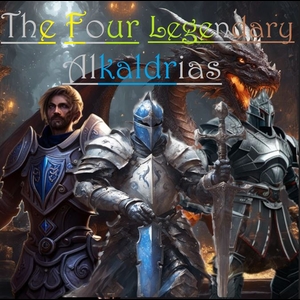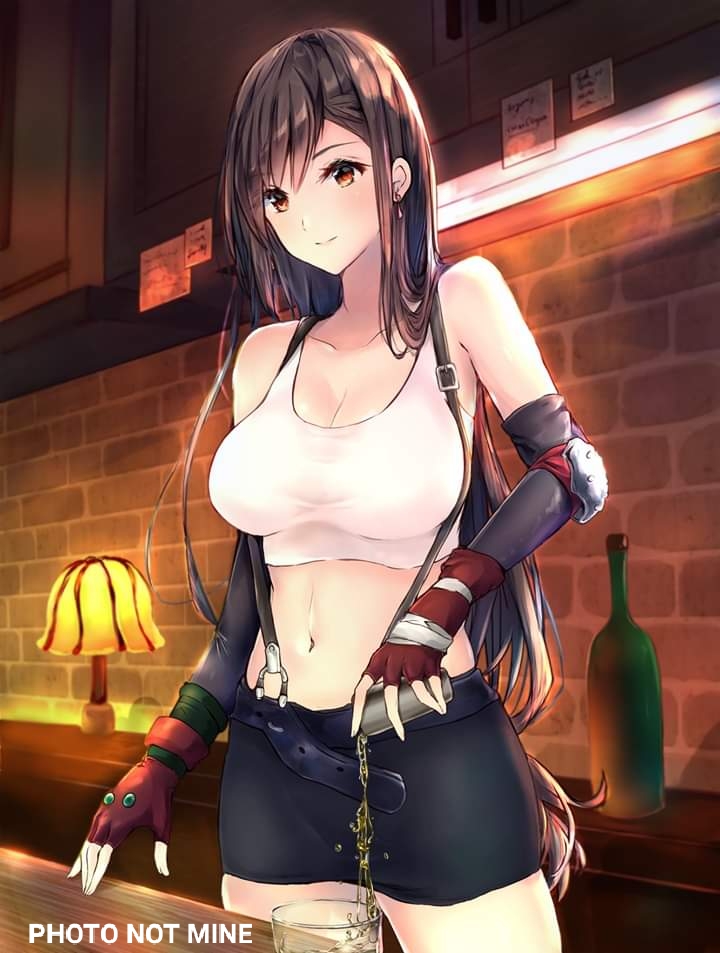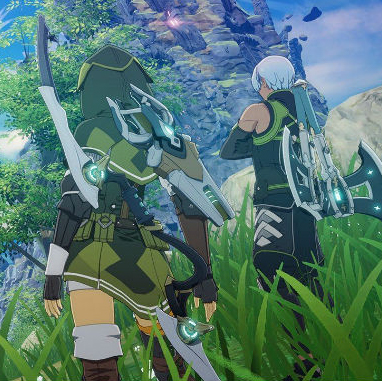The Atilonians made their move after Vultheras’ shield coalesced in an orb above the city. They advanced two columns of AF-Mizara onto the Wendergerd Bridge; thirty-two of their finest medium tanks, fit with formidable 3-Inch Finale long guns, rolled onto pitch-black asphalt of mixed pebbles and crushed glass.
Each tank had a crew of three: A gunner, a loader, and a driver. The lead tanks were further equipped with new radios and an extra man to operate the equipment. Radio antennas bounced on the backs of those spear-point tanks, their turrets painted with shark-teeth, or the graphic of a leaping lion.
Their commanders, peering through metal slits in their turrets—straining to see through the rain—were likely well informed. Intelligence readouts distributed at the battalion level gave the impression of a vulnerable city, poorly-defended by a few witless soldiers. If there were any resistance, it would come from fixed guns mounted on the fortified district walls that flanked the last mile of the bridge. They probably didn’t expect head-on resistance; without automatons, the Bastilhasians would surely have been mad to confront them.
And, yet, there was someone. There was one—strange—someone striding on the bridge, walking along the metal poles that divided the median. Despite the beams of lightning that sliced the troubled sea, and despite the wind that rocked the bridge, the man continued unabated. The commanders lifted their binoculars, and he became clear in their scowling eyes.
It was an old Bastilhasian gentleman, tan beneath his gray-gold cap and handsome with his long, white handlebar mustache. His greatcoat, colored like his hat, identified him as a noble; the rifle strapped to his shoulder and the sword sheathed to his side qualified him as a warrior. Beneath the cover of a black umbrella was a glare cast by ice-cold eyes.
Was this Jessica’s doing? the duke wondered, as he watched fire spread from the hills’ deep wounds. No, if she were capable of such a thing, we wouldn’t have needed the shield. Perhaps it’s divine intervention… or retribution.
Duke Eddleston halted, lowered his umbrella. The rain showered his hat and shoulders, wet his arms and his gloves, as he folded the umbrella and wrapped it closed with its button strap. He set it down, leaned it against the median divider. Next, he removed the rifle from his shoulder and looked it over. It was an Atilonian-made single-shot bolt action, sold to Bastilhas before their war against Baru. While it was obsolete compared to magazine loaded, or modern gas-operated guns, there was great sentimental value in the polished oak of its stock. He handled it with care, aimed it toward the approaching tanks, and—with the stock pushed against his shoulder—adjusted its rear sight. Its well-oiled gear turned smoothly between his fingers. Afterward, he set the rifle down and leaned it beside the umbrella, against the median.
Boom! A flash and black smoke erupted from the left-most tank’s main gun. A shell zipped past the duke’s head, curved in the wind and blew a hole in the bridge railing behind him. Pieces of metal clattered loudly as they fell against the road, and the duke furrowed his brow; the rain continued to fall.
Beyond the bridge, across the violent sea, were the tips of Vultheras’ west-facing districts. At each end was a naval gun, sat atop their elevators with their long, triple-barrel batteries leveled at the shore. The guns budged, inched higher, and roared with the brilliant plume of their fusillade. Seconds passed and the duke’s sword rasped along its sheathe; the full length of curved, red adamantine was drawn in his gloved hand.
The second lead tank fired and the shot went wide and struck the road behind the duke. Bits of asphalt scattered past Eddleston’s feet, and a flying stone knocked his hat from his head. His white hair fluttered in the wind; the hat, lifted by the gale, flew into the sea. Meanwhile, smoke erupted on the distant hills, where Bastilhasian shells struck bullseyes on Atilonian artillery.
Duke Eddleston leveled his left arm at the tank ahead, then about a hundred feet away. He raised his sword in his right hand and held it parallel to the arm, blade up-turned in the rain. “One warning shot is courteous,” the duke said, spaced his feet into a stance. “Two, is foolish.”
“Fourth Technique: Galesturm Slash.” The long edge of his sword glowed with green light. “Rank 10.”
The duke whipped the sword in backswing, swung it down toward the road. The sword-light moved with the swing, shrunk toward the tip—brightened to a single star—and was released by the full extension of the blade. Wind swept past Eddleston, tossed his hair and shook his beard, as it turned into a ferocious cyclone. The tanks, heavy though they were, lifted off the bridge. Some were tossed into the railing or into the ditch, where they were lost beneath the waves; the lead tanks, however, flipped onto a pile of several of their column. They crushed the squadron beneath them.
Duke Eddleston frowned, pinched his mustache back into shape. In one stroke, he had disabled the entire column, and blocked the bridge with a pileup of Atilonia’s own tanks. He grasped his scabbard with his hand and slid the adamantine sword back inside; locked it in place with a strap.
He wouldn’t be needing it.
There were many still among the wreckage, and they squirmed through hatches wherever they were found. Men in blue coats and leather gunners caps dropped to the ground, disoriented, but alive. They drew rifles, pistols, and swords; they approached the duke with their weapons drawn.
Eddleston picked up his rifle, opened the chamber, and examined the orange-tipped, brass-jacket bullet inside. He locked the chamber closed with the lever, turned to the advancing soldiers, and aimed the rifle. Flashes glared in his blue eyes, as bullets whizzed by his head, but the duke remained steady. Explosive fuel had begun leaking the moment the tanks were overturned, and when aerated by the wind, the fumes had spread among the pile.
Bang! the duke fired one orange-lit bullet. It zipped past the pilot crews, past the threat of their guns and their swords, to the gaps between the fuel-drenched, ammo-laden tanks. They went up like a volcano—an eruption so large it burst the ears, crippled the lungs—washed the pilots in fire and smoke. Eddleston looked unperturbed. He set the rifle down again, beside the umbrella, and removed the plugs from his ears.
“Sorry about that, Wagner,” he thought aloud as he picked up his umbrella. “I couldn’t protect our lovely bridge.”
When the duke turned to look at the flaming wreckage, his eyes widened slightly; impressed, not surprised. One pilot had jumped back to his feet, and furthermore kept a strong grip on his state-issued gladius. He stepped forward, put one foot after the other, and continued his approach apparently unbowed.
Duke Eddleston set his umbrella down.
“You’re looking well!” he shouted at the lone soldier as he turned up from the median.
The pilot said nothing; scowled as he pressed on.
“Don’t speak Bastilhasian?” the duke asked as they were then just twenty-feet apart.
“Wizard dog,” the pilot said, his stilted Bastilhasian joined with a distinctly Atilonian accent.
Duke Eddleston made a slight smile. “Idiot boy,” he replied in Atilonian.
The pilot, a young man about as old as the duke’s own sons, was enraged. He shuddered, charged duke Eddleston with his short gladius out-swung. Walking—to say nothing of running—was impressive enough, but he crossed to stabbing distance at remarkable speed. The duke kept one hand on the hilt of his sword and the other close at his side as he pedaled back; turned, stepped aside, and otherwise avoided the pilot’s swings.
“Good,” the duke taunted in Atilonian. “Part the legs, use both hands. Swing harder!”
He drove the pilot into a red-faced frenzy; a wild-eyed struggle in the pouring rain, but the gap in power was obvious. At the end of their bout, the pilot was left gasping for breath, the duke was soaked by rain, not sweat.
“Far enough?” Eddleston asked in Atilonian. “One chance, perhaps?”
The duke moved his hands behind his back.
“A free shot,” he said to the pilot.
The pilot, eyes blood-shot in pain and exhaustion, took his gladius up in both hands. He pressed its pommel against his stomach and screamed, charged the duke one more time. The blade punched through the duke’s dress suit, through the gut, and its steel tip exited the back. Blood poured from the wound, down the shirt and against the leg; pooled on the duke’s belt.
The pilot breathed steadily, his rage expended, his fatigue made real again. As his hands slipped from the gladius, he was caught in the duke’s grasp. Eddleston grabbed the boy by the throat with his left hand and lifted him off the road. He struggled, naturally, and clawed at the duke’s wrist and fingers. It was no use.
There was a difference between the pilot and the duke that could not be surmounted with mere strength, experience, or skill. One was magical, and the other was not. A single stab from a sword was painful, and it could be debilitating, but it was an inconvenience in the greater sense. Meanwhile, the duke crushed the pilot’s windpipe; lifted him easily, like a bundle of straw. Those without mana weren’t just weak, they were emaciated; starved of real power.
“You showed promise,” the duke spoke Bastilhasian as the pilot’s face turned blue and his hands went stiff. “If you had been a swordsman, and not a pilot, you may have given me a good duel. Alas, you are Atilonian.
“You have killed many of my countrymen. For that reason, all your promise will be wasted. You must die.”
Snap!
The pilot dropped like a sack from the duke’s hand. He crumbled, limp and lifeless, and in a heap on the road. His glass-blue eyes stared upward, into the pouring rain.
Duke Eddleston frowned.
“C’est la vie.”











